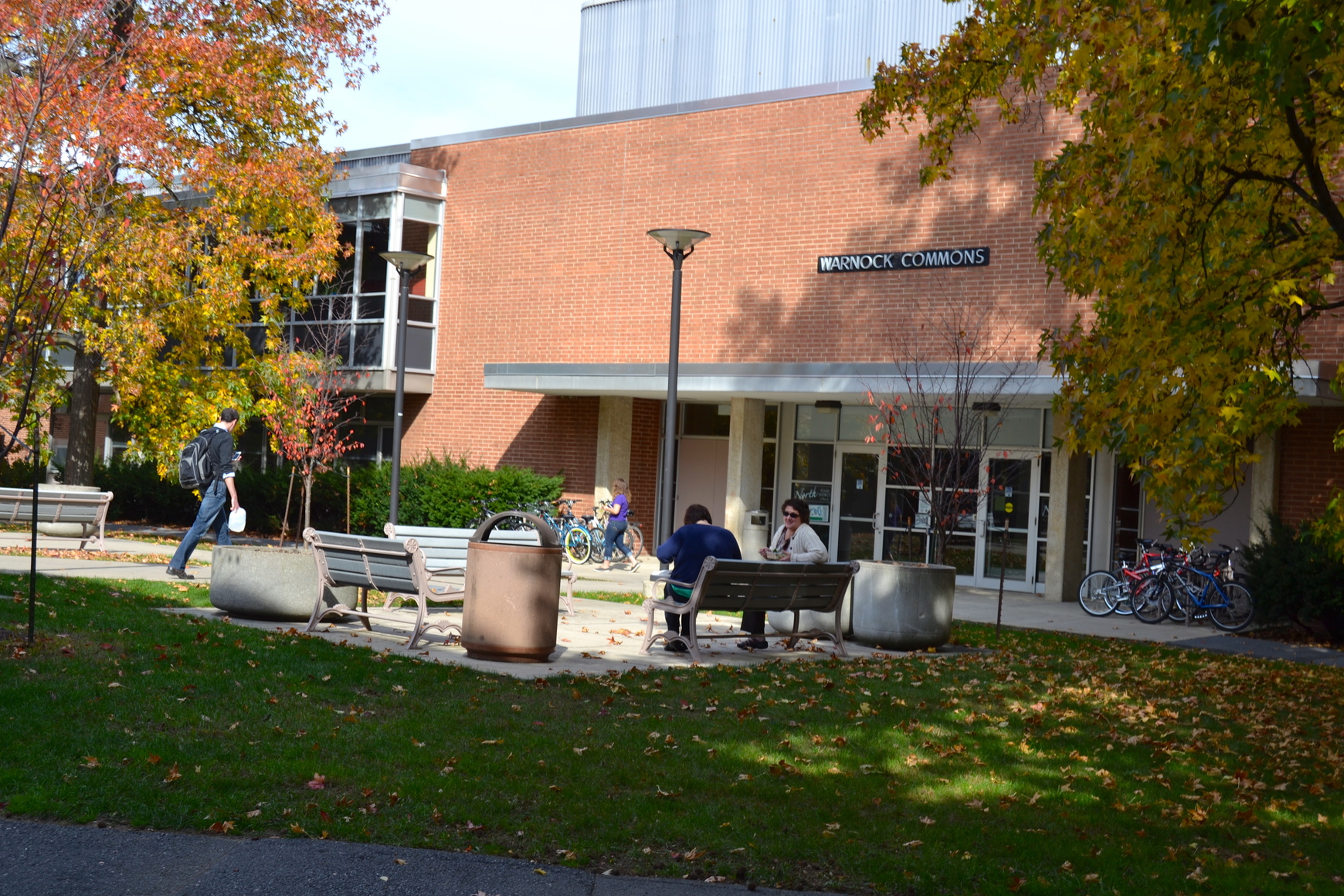NFL Player-Turned-Activist Wade Davis Gives Energetic Lecture On Campus Rape Culture

Wade Davis, a former NFL player who is now an activist for gender, race, and orientation equality, spoke about rape culture on college campuses to a strong crowd at Freeman Auditorium in the HUB Tuesday evening.
Davis’ professional football career didn’t last long, and he didn’t spend much time discussing it in his lecture. He retired in 2003 after never seeing the field in the regular season, but his experience as a football player from high school to the pros was overshadowed by a realization he had as a tenth grader. Davis was 15 years old when he realized that he was gay, but did not publicly come out until 2012, 20 years later.
The Little Rock, Akransas native shared stories of how he tried to suppress the fact that he was gay, naming one specific girlfriend of his who was, as he said, “Fiiiiine.” Her name was Nicole, and he made sure to flaunt her to all of his friends because it validated his masculinity and made his friends believe that he was straight. Davis addressed this point of men using women to validate their masculinity, but does not think this single concept is an all-encompassing definition of the term “masculinity.”
“There is no one definition of what it means to be a man,” he said. “There is no one definition of masculinity. If there is one way of being something, that always excludes another way.”
Davis went on to discuss rape culture and showed two videos about the subject. The first video, “Sexual Assault on College Campuses,” presented facts about sexual assault, while the second, “Tea Consent,” made an analogy comparing the act of rape to offering someone a cup of tea.
These two videos supplemented Davis’ discussion of the current rape culture present on college campuses. He made several blunt points about rape culture, and thinks the key to solving this problem is having a better understanding of the idea of consent.
Davis surveyed the audience to see how many people’s parents discussed sex with them, and he thought a “decent” amount of people raised their hands. Almost all of those hands went down when he asked a follow-up question asking how many students’ parents had talked to them about consent.
“We have to wrestle with the idea of consent,” he said, “but what is consent? Why do we not talk about consent?”
Davis also focused on the idea of coercion pitted against consent itself. He noticed people are generally taught that the ability to convince someone into having sex with them is emphasized more than the idea of actually getting consent.
“We aren’t taught consent, we’re taught coercion,” Davis said. “That’s called ‘having game,’ but it’s not ‘game,’ it’s coercion. That’s not consent.”
He added that men need to become more confident in themselves in order to reverse the pattern of sexual assault found on college campuses. This growth in self-confidence could lead men to speak up against sexual assaults that they witness and to clearly ask potential partners if they’re interested in having sex.
The event was hosted by Penn State’s Gender Equity Center and co-sponsored by Penn State Residence Life and UPUA’s Sexual Violence & Awareness Prevention roundtable as part of Sexual Assault Awareness Month.
Your ad blocker is on.
Please choose an option below.
Purchase a Subscription!




